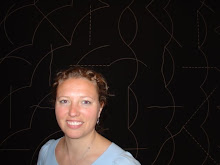If you can handle the lousy editing, Closing the Food Gap is a very informative read with many stories and situations that are absolutely fascinating. I was around page 90 when I just had to go back and look at the credits at the beginning of the book. Mark Winne thanks his High School English teacher. I am positively certain that the teacher was fabulous. My preferred teachers were, elementary through graduate school. But that doesn’t mean that I would write a book without an editor! (A blog, yes.)
The editing and reasoning skills of Winne were continually lacking, but the experiences were full and rich. He spent 25 years working on food justice programs in Connecticut, and is now a writer, speaker, and lives in New Mexico. He thoroughly described the efforts he wrought on every social level for the health and nourishment of his communities, many of which were wonderfully admirable. They do paint a bleak picture of Connecticut, though, so the tourism board may not look favorably on this book.
As a Washingtonian, not DC, I felt that a lot of the issues he brings up were out of place in my Whole Foods neighborhood. I say that but know that many other parts of my city are less well served. I have ample access to good, healthy food, including numerous Farmers’ Markets, where I pick up my weekly CSA box of vegetables. This is Winne’s dream-neighborhood. He wants this for every single American: the opportunity to pay top dollar for perfect produce, the opportunity to walk to high quality food resources, and the opportunity to support my local farmer.
Actually it’s my dream neighborhood, too. Since moving here in March of this year, although my income has been slashed to pieces, I am living a happier, healthier life. How did I participate in Resetting the Table in the Land of Plenty? I’m not sure. I do make impeccable eating decisions, and that’s an excellent start. I live among people who make pretty good decisions, too, and so my immediate culture supports the lifestyle.
That this isn’t available to many, many poor urban people in America is regrettable. That it isn’t available to many others whether in rural or small communities is also plausible. This is actually my first close Whole Foods store, and I’m in my 30’s. And I fall into the group of people who Winne also falls into, but whom he dislikes: white, middle class, educated, and healthy. Throughout his book he takes innumerable cheap shots at said group, saying that the reason for no Whole Foods in inner cities is because of racism, desire for solvent businesses, political candidate choices, and bowing to Coca-Cola.
That’s weak in my opinion. I refuse to drink Coke (or Pepsi), have only even witnessed blatant racism once (and left event with racially ostracized individual), maintain reasonable doubt that policies are to blame for people eating junk food, and think that if any of us want to have some good economic growth that those who take incredible economic risks get to choose where.
Even if Winne’s arguments are lacking, his conclusions are strong. Ok, one was nuts, “If we are going to subsidize (new farmers’) entry into to farming, we should not be doing it only to feed the elite customers of Whole Foods Market. That’s like publicly supporting medical school for doctors whose future practice will be limited to cosmetic surgery for the Greenwich, Connecticut, tennis set instead of basic health care in Harlem.” (Closing, 189)
His argument starts because Whole Foods is currently helping local farmers grow for its stores (I see it in mine right here in Seattle – the same Full Circle Farm at the Farmers’ Market is at Whole Foods). So, Winne decides this is smart, and something that the US government should get in on, but not for anybody who has access to Whole Foods. Those kinds of people don’t deserve it. He misses the point that you can’t move forward by demonizing those who have because there are those who have not. Growing vegetables for Whole Foods is like a basic health care doctor for the tennis set as much as growing vegetables for a street market would be like a basic health care doctor for those in Harlem. Farmers, politicians, businesspeople, and rank humanity do not turn apples into oranges despite Winne’s assertions.
Obviously I am not giving this book a glowing review, but that would be impossible for certain structural issues. But I do want to point out that Winne’s work towards closing the food gap is inspiring, the quotes he chooses to disperse at chapter heads applicable, and his assessment of need for new ways to resolve food insecurity in America bright. That he maintains mentors and strong human bonds gives him credence that his writing is unable to bestow. And, as always, a book that references God, even if asking Him for arrogance, which maybe would be seen more nicely as boldness, assures me that all Winne’s ups and downs, insights and misperceptions may even move us towards the justice God seeks.
I’ll end with my favorite sentence as I can sympathize with it without even participating wholly, “… when it comes to food, there is a fine but resilient thread that stitches together the fears, hopes, and aspirations of everybody who has children.” (Closing, 129) Yes, if I’ve learned anything from novels and human priorities, feeding one another good food is always a matter of great importance.
Subscribe to:
Post Comments (Atom)

No comments:
Post a Comment